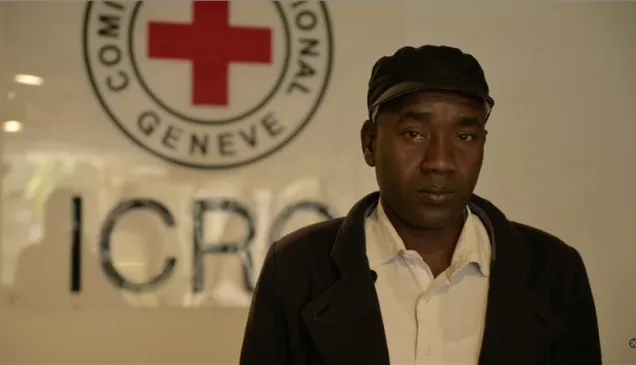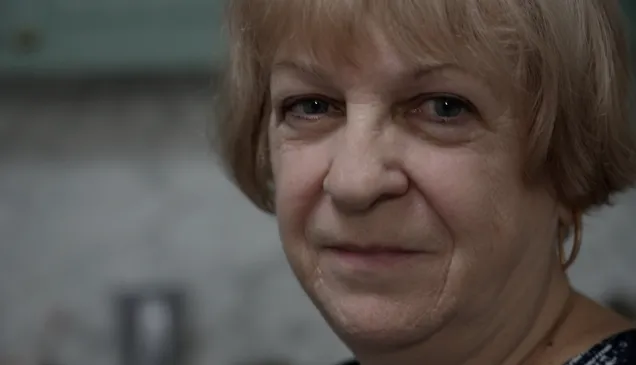Cyclone Idai: Our response in Mozambique
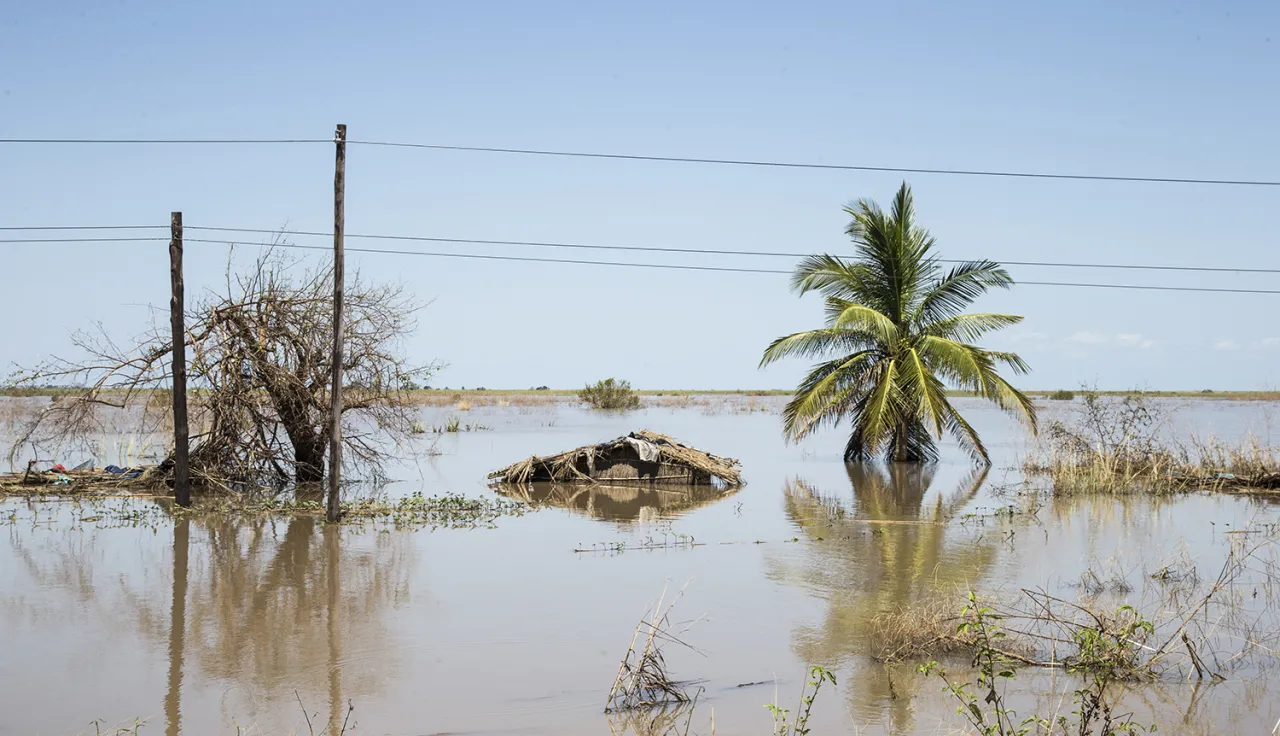
In early March, heavy rains inundated Mozambique and Malawi, causing deadly floods. The storm soon developed into tropical Cyclone Idai, which has affected an estimated 1.8 million people in Mozambique alone, according to the United Nations. Hundreds of thousands more have been impacted in neighbouring Zimbabwe and Malawi.
Every day we learn more about the scale of devastation Cyclone Idai caused. It's massive. It will take time to understand the full scale of the needs, with remote communities still cut-off by flood-waters. Residents have lost homes, livelihoods and loved ones.
Helping separated families
Rescue efforts and emergency relief like shelter are vital, but an often-forgotten need is for people to know where their loved ones are. Many families are living in constant anxiety of whether family members are alive or not.

Photo: Amilton Neves/Nuku Studio
Families have been separated or lost contact in the storm or while being evacuated. The agony of not knowing what happened to your loved one in a disaster like Cyclone Idai is indescribable. We have staff in Malawi, Mozambique and Zimbabwe working to set up systems to help families without access to phone or internet find their missing relatives.
The International Committee of the Red Cross (ICRC) has launched a website for people to mark themselves as safe and to search for loved ones who may have done the same. The website is available in Portuguese and English.
Because many of the affected areas remain without power or access to the internet, we are working with the national Red Cross societies in Mozambique, Malawi and Zimbabwe to set up systems to register and search for missing people including unaccompanied and separated children.
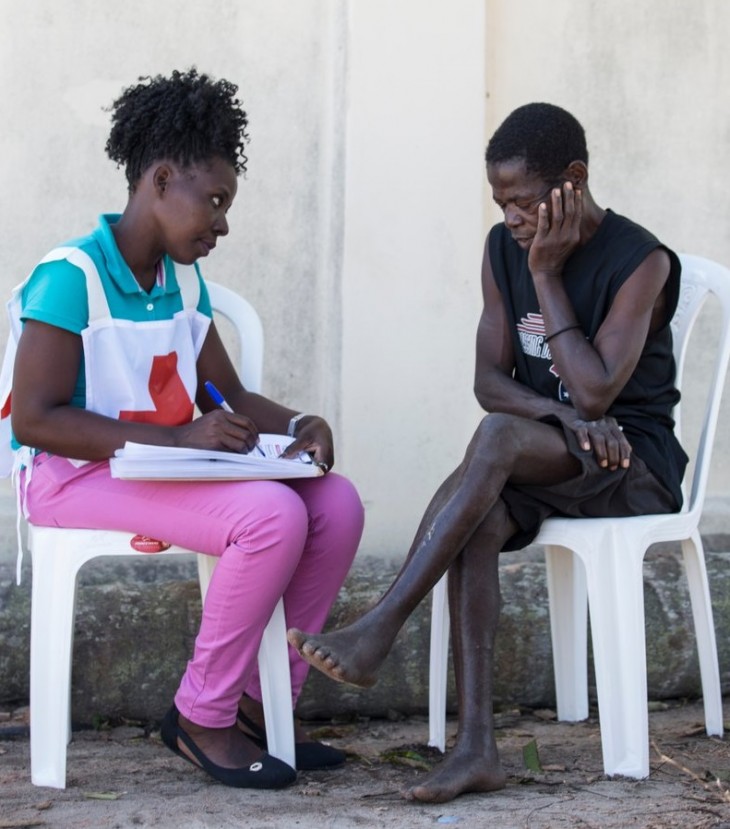
Joachizinesa Matange is one of the people we are assisting through our Restoring Family Links programme. Photo: Amilton Neves/Nuku Studio
Our Restoring Family Links team is visiting resettlement camps and rural communities to help families separated by Cyclone Idai to reconnect with their loved ones.
Forensics activities in Mozambique
After a natural disaster, it is critical that the dead are catalogued and managed in a dignified way. Without proper management of human remains, bodies go unidentified and families are less likely to have closure.
The challenge for us is that the burials are very shallow. It's not a burial as much as a clump of trees and debris that people put on the body. Very soon that would be moved by the wind, the rain and the water, so that body will just reappear and require another more permanent burial.
Our forensics team has been working to support authorities in the village of Dombe, a few hours' drive from Chimoio, to establish a system for managing the dead.
Given the flooding, creative solutions are needed. Our forensics team is assessing the needs and options in remote communities.
Healthcare
There is a real threat of disease outbreaks like cholera. Malaria cases are likely to rise. Clean water and access to health care and sanitation will be vital. Our water and sanitation experts as well as our health teams are working with our Red Cross partners to find the best way to respond to these needs.
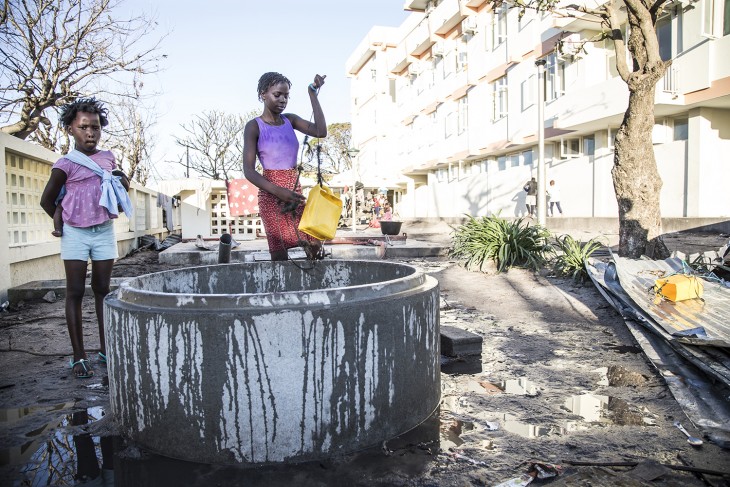
Photo: Amilton Neves/Nuku Studio
In Beira, electricity has been a struggle at the city's largest hospital, affecting health care providers' ability to respond to those in need. The ICRC donated 1,000 litres of fuel to help provide generator power for the hospital. The ICRC has also donated medicines and medical supplies to other health facilities in central Mozambique and eastern Zimbabwe.
The ICRC has been working in Beira, central Mozambique, to respond to the humanitarian consequences of the armed violence which affected communities in the provinces of Manica and Sofala between 2014 and 2016. We are very concerned about the rural communities that we served before Cyclone Idai hit, with some of them still cut-off from outside help.
From our logistics base in Chimoio, we have deployed a team to rapidly assess the situation in these remote communities in Manica and Sofala so that we can begin to provide life-saving support and respond to the urgent needs. We are also starting to distribute relief supplies in some of these communities.

